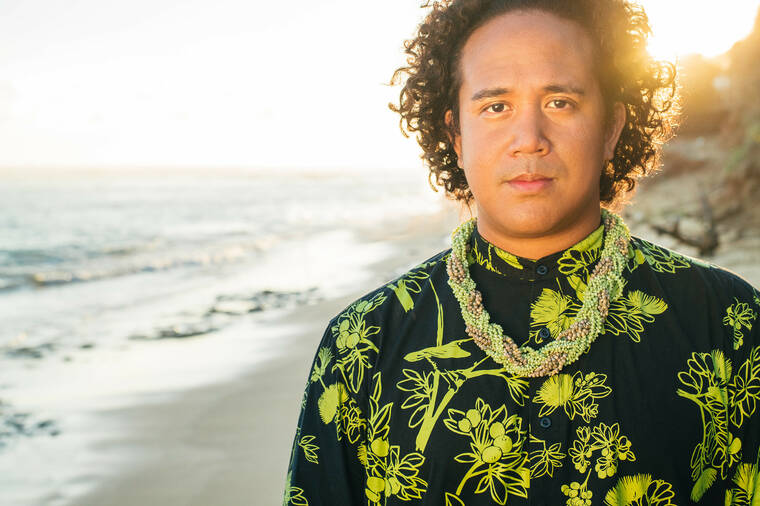Hilo native Jace Kaholokua Saplan will represent Hawaii as part of the Obama Foundation’s Leaders of the Asia Pacific Program.
Saplan’s career in choral arts has spanned from Hawaii to Washington, D.C., and from New York City’s Carnegie Hall to the Church of the Holy Trinity in Rittenhouse Square in Philadelphia. But throughout his journey, his hometown has inspired and motivated his artistic direction.
“What we have in Hilo is something truly special and something that can prepare anyone for engaging in both an artistic and critical way,” Saplan said. “It was such a beautiful, synergistic way of seeing what is possible when you are authentic to yourself and when you connect your culture and identity to the larger world.”
Saplan was inspired by his kumu at Kamehameha Schools Hawaii, and he went on to attend the University of Hawaii at Manoa, where he founded and served as artistic director of the Na Wai Chamber Choir, an ensemble dedicated to Hawaiian music preservation.
“Na Wai has now blossomed into a professional ensemble that comes with it a national reputation,” said Saplan, who still serves as the group’s director of choral activities.
Saplan directed the ensemble’s album “Eo, E Lili‘uokalani,” which celebrates the original compositions of Queen Lili‘uokalani, honoring the performance practices of 19th century Hawaiian music.
“What I see happening, in the choral arts especially, is this understanding that the future requires an approach that is much more multicultural in scope, much more global,” he said.
“This incredible way of looking at music, not necessarily as solely performative, but as life-giving.”
In June, Saplan was selected to represent Hawaii as part of the Obama Foundation’s Leaders of the Asia Pacific Program, a cohort of 35 individuals from across the region who will help with leadership development and community engagement.
“It is quite an honor to be able to represent Hawaii for this particular fellowship,” he said. “One of the things that I am really interested in is taking a look at the performing arts and cultural practices as ways that can help train, inspire and hold space for leadership, especially during times of incredible discord, which we find ourselves in right now.”
The six-month program will allow Saplan to participate in weekly sessions addressing a broad range of issues like climate change, indigenous rights and education.
Saplan also was recently selected as an associate professor of music and choral conducting at Arizona State University, where he will serve as co-chair of choral activities.
In September, Saplan also will serve as the artistic director of the Choral Arts Society of Washington, where he plans to use his heritage as inspiration.
“Coming from a culture in which music is all around us, music is ritualistic, music is both vocation and avocation, to be able to offer that perspective to these professionally trained musicians and for them to understand that the performance is not just for audience entertainment, but a cyclical relationship in which we honor each other through song, comes from my upbringing in Hawaii,” he said.
In June, Saplan will return to Carnegie Hall for his third appearance in a series that will highlight Asian and Pacific voices.
“It’s an honor to show up to that space and to represent Hilo and Hawaii and my people and identities on that stage,” he said.
Reflecting on his journey, Saplan feels Hilo prepared him for everything.
“When I show up to a space, and if I may be the only person in the room that identifies as kanaka maoli or looks like me, my connection to my culture and my heritage and this particular music is a constant reminder that I am not alone,” he said.
“I bring an entire town with me. I bring Hilo with me, I bring my ohana and ancestors with me, I bring my language and my culture.
“I may be an outlier in many spaces, but that doesn’t necessarily mean I am alone.”
Email Grant Phillips at gphillips@hawaiitribune-herald.com.

